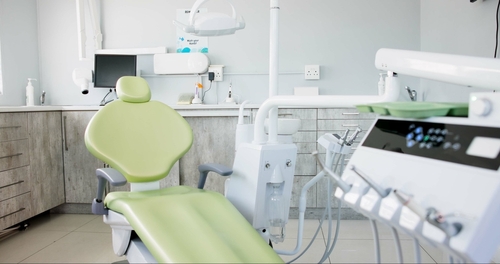Curious about “what can you use a health savings account for?” HSAs are versatile and can cover medical, dental, vision, and even some surprising expenses. This guide explores all the eligible costs you can manage using your HSA funds.
- Health Savings Accounts (HSAs) offer triple tax benefits: contributions are tax-deductible, funds grow tax-free, and withdrawals for qualified medical expenses are tax-exempt.
- HSAs can be utilized for a broad range of medical expenses, including dental and vision care, as well as over-the-counter medications and alternative treatments.
- HSAs are portable and can be used for family members’ qualified medical expenses, providing flexibility and financial relief as healthcare needs arise.
Understanding Health Savings Accounts (HSAs)
A Health Savings Account (HSA) is a powerful financial tool designed to help individuals save for healthcare expenses. Unlike other health-related savings accounts, HSAs offer a unique blend of benefits that make them an attractive option for anyone seeking to manage medical costs efficiently. HSAs are available to individuals enrolled in a federally qualified high deductible health plan (HDHP).
A key feature of health savings accounts is their tax advantage. Contributions to an HSA are tax-deductible, meaning you can reduce your taxable income by the amount you contribute. Not only that, but the funds grow tax-free, and withdrawals for qualified medical expenses are also tax-exempt, providing a triple tax benefit.
HSAs are incredibly flexible in terms of contributions. Anyone can contribute to your HSA, including you, your employer, or even a family member. This flexibility ensures that you can build your HSA balance over time, regardless of your employment situation. Plus, the funds in your HSA don’t expire; they roll over from year to year, allowing you to save for future health care expenses without any pressure to spend them immediately.
HSAs also offer significant portability. You can maintain and use your HSA even if you change employers or become unemployed. This portability ensures that your health savings remain intact and accessible whenever you need them. Whether you’re employed, self-employed, or between jobs, your HSA stays with you, offering a reliable source of funds for eligible medical expenses.
What Can You Use a Health Savings Account For? – Eligible Medical Expenses
Knowing which medical expenses qualify for HSA reimbursement is crucial for maximizing your account’s benefits. HSAs cover a wide range of qualified medical expenses, including:
- Medical care
- Dental care
- Vision care
- Certain medical supplies (e.g., diabetic testing equipment, pregnancy tests)
This ensures that you can use your funds effectively.
HSAs also cover some over-the-counter medications without the need for a prescription. You can use your HSA funds to purchase items like pain relievers, allergy medications, and cold remedies, making it easier to manage everyday health needs. Additionally, weight loss programs prescribed by a doctor can be considered eligible expenses for HSAs, offering support for those needing to address weight-related health issues.
In the realm of alternative treatments, HSAs provide even more flexibility. Treatments like acupuncture, which may not be covered by traditional insurance plans, can be reimbursed through an HSA. This inclusion allows you to explore various treatment options that best suit your health needs without worrying about out-of-pocket costs.
It’s important to note that while HSAs cover a broad spectrum of medical expenses, they are specifically designed to reimburse qualified medical expenses. This includes costs incurred for medical services, prescription drugs, and other necessary treatments. By understanding what qualifies as a medical expense, you can ensure that you’re using your HSA funds appropriately and taking full advantage of the tax benefits.
Keeping track of all your medical expenses and ensuring they fall within IRS guidelines is key to maximizing your health savings. This vigilance will help you avoid potential penalties and make the most of your HSA contributions. Knowing what expenses are covered, whether for routine check-ups, prescriptions, or alternative therapies, can significantly enhance your healthcare management strategy.
Learn More: The Self-Directed IRA
Dental Expenses Covered by HSAs
Dental expenses can often be a significant part of healthcare costs, but fortunately, HSAs can help cover a variety of dental services. From routine check-ups to more complex procedures, your HSA funds can be used to manage these expenses effectively. Qualified medical expenses for HSAs include dental and vision care for yourself, your spouse, and dependents, ensuring comprehensive coverage for your family’s dental needs.

Orthodontic treatments, such as traditional braces and alternatives like Invisalign, are eligible for HSA reimbursement. These treatments are not just cosmetic; they play a crucial role in preventing dental issues and maintaining oral health. By using your HSA to cover these expenses, you can ensure that you and your family receive the necessary dental care without the financial burden.
When it comes to dental procedures like crowns, braces, and dentures, HSAs can be a valuable resource. These services, when deemed medically necessary, can be covered using your HSA funds. This coverage extends to dental implants and veneers as well, although documentation of medical necessity may be required to qualify for HSA reimbursement.
Verifying the eligibility of each dental treatment based on IRS guidelines and specific plan provisions ensures you make the most of your HSA. This due diligence ensures that you are using your HSA funds appropriately and can help avoid any potential issues with reimbursement. By doing so, you can confidently manage your dental care expenses and maintain optimal oral health for you and your family.
Vision Care and HSAs
Vision care is another critical area where HSAs can provide substantial benefits. From routine eye exams to corrective surgeries, your HSA can help cover a wide range of vision-related expenses. For instance, LASIK eye surgery, a popular procedure to correct vision, qualifies as an eligible expense under HSAs. This can be a significant financial relief for those considering this life-changing procedure.
Cataract surgery, which is essential for improving vision affected by cataracts, is also covered by HSAs. This coverage ensures that patients can receive the necessary treatment without worrying about the financial burden. Additionally, treatments and surgeries for glaucoma, a serious eye condition, can be paid for using HSA funds if a diagnosis is made.
For individuals with diabetes, HSA funds can be used for diabetic eye exams and related care. This is crucial for managing the complications associated with diabetes and maintaining good eye health. Furthermore, prescription eyeglasses and lenses, including specialty types, are eligible for HSA reimbursement. This allows you to use your HSA funds to purchase the eye wear you need to see clearly.
HSAs cover a variety of vision-related expenses, ensuring that you can maintain optimal eye health. Utilizing your HSA for vision care expenses allows you to manage costs and ensure your family receives necessary treatments and products for good vision.
Unexpected HSA-Qualified Expenses
HSAs are not just limited to conventional medical expenses; they can also cover some unexpected costs that many account holders may not be aware of. For example, certain types of personal protective equipment, such as masks and hand sanitizers, can be paid for using HSA funds.
Additionally, expenses related to genetic testing and assessments may qualify for coverage under HSAs. Knowing about these unexpected HSA-qualified expenses can help you maximize your health savings and prepare for various healthcare needs.
Investing Your HSA Funds
One of the lesser-known benefits of HSAs is the ability to invest your HSA funds, offering the potential for significant growth over time. When your HSA balance reaches a certain threshold, typically $1,000, you can start investing in mutual funds or through a brokerage account. This investment option allows your HSA to grow beyond the standard interest earned in a savings account, providing a powerful tool for long-term financial planning.
Your HSA funds earn interest, allowing them to grow even without active investing. Taking advantage of available investment options can significantly increase your HSA balance, providing more funds for future healthcare expenses. This can be particularly beneficial if you don’t need to use your HSA funds immediately and can allow them to grow tax-free.
Investing your HSA funds in mutual funds is a popular option, offering a range of investment choices to suit different risk tolerances and financial goals. By selecting the right investment strategy, you can maximize the growth potential of your HSA while still maintaining the flexibility to withdraw funds for qualified medical expenses as needed.
Staying informed about your options and regularly reviewing your investment strategy ensures you make the most of your HSA investments. This proactive approach ensures that you are maximizing the growth potential of your HSA and securing a robust financial future for your healthcare needs.
Non-Qualified Medical Expenses
Non-qualified medical expenses that are not eligible for HSA reimbursement include:
- Cosmetic surgery
- Exercise equipment
- Fitness programs
- Household help
- Teeth whitening
- Family or marriage counseling
These items are considered general use or personal expenses and do not meet the criteria for HSA reimbursement.
Common dental products and services such as toothbrushes, toothpaste, and teeth whitening are generally not eligible for HSA coverage. These items are considered personal hygiene products and are not covered by HSAs. Understanding these limitations can help you avoid inadvertently using your HSA funds for non-qualified expenses.
If an individual under age 65 uses HSA funds for non-qualified expenses, they will face significant penalties. Specifically, they will have to pay income tax and a 20% penalty on the withdrawal. This can be a costly mistake, so it’s crucial to ensure that all HSA withdrawals are for qualified medical expenses.
The consequences of withdrawing HSA money for non-qualified purposes can be severe, including being subject to income tax and a 20% penalty. By staying informed about what expenses are eligible and adhering to the guidelines, you can avoid these penalties and make the most of your HSA funds.
Maximizing Tax Benefits
One of the most compelling reasons to use an HSA is the significant tax benefits it offers. HSAs provide triple tax benefits: contributions are tax-deductible, earnings grow tax-free, and withdrawals for qualified medical expenses are also tax-exempt. This makes HSAs an incredibly effective tool for managing healthcare costs while reducing your overall tax burden.

Contributions to an HSA are made on a pretax basis, reducing your taxable income. This means that you can lower your tax bill simply by contributing to your HSA. Additionally, HSA contributions can be deducted from your gross income, providing a significant tax deduction. This deduction can help you save money and maximize your health savings.
Withdrawals for qualified medical expenses from an HSA are completely tax-free. This means you can use your HSA funds to pay for eligible medical expenses without worrying about additional taxes. This tax-free benefit extends to withdrawals from invested HSA funds, ensuring that you can use your investment earnings for medical expenses without facing penalties.
To maximize the tax benefits of your HSA, it’s important to adhere to the IRS-set annual contribution limits. Staying within these limits ensures that you can take full advantage of the tax benefits without facing penalties. Additionally, using paycheck deductions for HSA contributions can further reduce your taxable income and provide additional tax savings.
Understanding and leveraging the tax benefits of HSAs can significantly enhance your health savings and reduce your overall tax burden. This proactive approach to managing your HSA ensures that you are maximizing your financial resources and securing a brighter financial future.
Using HSAs for Family Members
HSAs are not just for individual use; they can also be a valuable resource for covering medical expenses for your family members. Your HSA funds can be utilized for qualified medical expenses. This includes expenses for your spouse and children. This broad coverage ensures that your entire family can benefit from the tax advantages and financial flexibility of an HSA.
Qualified medical expenses for dependents are defined by IRS guidelines and can include a wide range of health-related costs. Using your HSA to cover qualified medical expense ensures your family’s healthcare needs are met without straining your household budget.
Besides covering medical expenses for your spouse and children, HSAs can also pay for the medical expenses of other tax dependents. This includes individuals who are financially dependent on you, providing comprehensive coverage for your extended family.
Utilizing your HSA for family members maximizes the benefits of your health savings account and ensures your loved ones receive necessary medical care. This approach not only provides financial relief but also offers peace of mind knowing that your family’s healthcare needs are covered.
Retirement and Your HSA
As you approach retirement, your HSA can become an even more valuable resource for managing healthcare expenses. After turning 65, you can withdraw HSA funds for any purpose without facing the additional tax penalty, although normal income taxes will apply to non-qualified expenses. This flexibility makes HSAs an excellent tool for covering various expenses in retirement.
One of the significant benefits of HSAs for retirees is the ability to use HSA funds to cover Medicare premiums for Parts B, D, and C. This can provide substantial financial relief, ensuring that you can afford the necessary healthcare coverage without dipping into your retirement savings.
If you retire early before age 65, you can still contribute to your HSA as long as you are not enrolled in Medicare. This allows you to continue building your HSA balance and take advantage of the tax benefits. However, it’s important to plan carefully and stop HSA contributions six months before starting Social Security to maintain eligibility if you defer Medicare.
HSAs also offer the advantage of covering eligible medical expenses incurred after retirement, even if the account holder is on Medicare. This ensures that you can continue to use your HSA funds for qualified medical expenses, providing financial security and peace of mind during your retirement years.
Leveraging your HSA in retirement ensures you make the most of your plan and secure a stable financial future for your healthcare needs.
Summary
HSAs are a powerful and versatile tool for managing healthcare expenses, offering a range of benefits that can significantly enhance your financial stability. From their tax advantages to their flexibility in covering a wide array of medical expenses, HSAs provide a comprehensive solution for healthcare savings.
By understanding the eligible and non-qualified medical expenses, you can ensure that you are using your HSA funds appropriately and maximizing their potential. Whether it’s for dental care, vision care, unexpected expenses, or investments, HSAs offer unparalleled flexibility and benefits.
Additionally, using HSAs for family members and planning for retirement can further extend the advantages of these accounts, ensuring that you and your loved ones are well-prepared for any healthcare needs. By staying informed and proactive, you can make the most of your HSA and secure a brighter financial future.
In conclusion, HSAs are an invaluable resource for managing healthcare costs, providing tax benefits, and offering investment opportunities. By leveraging the full potential of your HSA, you can navigate healthcare expenses with confidence and ease, ensuring financial stability and peace of mind.
Frequently Asked Questions
Can I use my HSA to pay for dental expenses?
Yes, you can use your HSA to pay for dental expenses such as crowns, braces, dentures, and other medically necessary procedures. This flexibility allows you to manage your dental care costs effectively.
Are over-the-counter medications eligible for HSA reimbursement?
Over-the-counter medications are eligible for HSA reimbursement without a prescription, allowing you to effectively manage your health expenses. Ensure you verify specific product eligibility to maximize your benefits.
Can I invest my HSA funds?
Yes, you can invest your HSA funds once your balance reaches a certain threshold, typically around $1,000, allowing you to choose options like mutual funds or brokerage accounts. This can help grow your healthcare savings over time.
What happens if I use my HSA funds for non-qualified expenses?
Using HSA funds for non-qualified expenses before age 65 results in income tax being applied, along with a 20% penalty on the withdrawal. It is advisable to reserve these funds for qualified medical expenses to avoid financial setbacks.
Can I use my HSA to pay for my family’s medical expenses?
Yes, you can use your HSA to pay for qualified medical expenses for your spouse, children, and other tax dependents. This makes HSAs a valuable tool for managing family healthcare costs.





